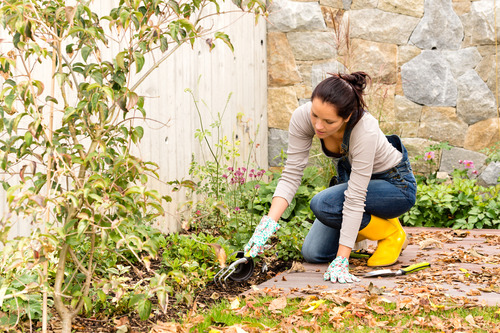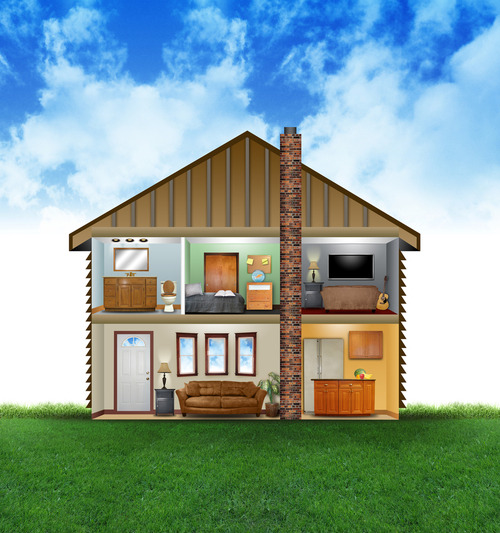If you use a boiler to heat and cool your home, you probably don’t give it much thought throughout the year. Your boiler heats both your home and your water, but the extra load for home heating in the winter is when it’s most likely to fail or develop problems. If you have the chance, get your boiler inspected and maintained before the harsher weather sets in. A properly maintained furnace can be fixed before problems develop, putting less wear on the system overall.
This winter, here are the 10 most common problems your boiler is likely to face:
- Banging, Whistling, Gurgling
Cause: Air in the system is usually the cause of strange banging or whistling noises from your boiler (though low pressure and kettling can also be at fault). A pump failure will generate many strange noises of its own.
Fixes: Bleed your radiator or get a power flush of the pipes. This should remove excess air from the system. If noises are still an issue, call a qualified technician to look at the pump or boiler itself.
- Kettling
Cause: Lime scale buildup within the boiler or its piping. The most obvious sign is strange noises (gurgling, rumbling, whistling) coming from the pipes.
Fixes: Flushing the pipes should remove the buildup. If the noises continue, consult a professional.
- Boiler Keeps Turning Off
Cause: Unfortunately, many issues can cause your boiler to shut off regularly. Low water pressure, thermostat problems, air and water mis-circulation, or a closed water valve can cause your boiler to shut off.
Fixes: Call your water utility company to see if work is going on in the area, it could explain the lower water pressure. Check to see if any valves necessary for your boiler’s operation are partially or completely closed.
- Radiator Doesn’t Heat
Causes: If your radiator won’t heat, or stays warm at the bottom and cold at the top, it could be due to air in the system or rust buildup within the pipes. A pump circulation issue may also be to blame if hot water is not reaching the top of the radiator.
Fixes: Once again, bleeding the system is your best chance of cleaning out excess air if that’s the issue. Otherwise, you may need a power flush to clean out the rust. At worst, a technician is necessary to fix the pump if that’s what’s preventing water from flowing through your radiator.
- Thermostat Inaccuracy
Causes: An aging or broken thermostat can become inaccurate or completely non-functional. This leads to excessively hot water or a lack of boiler operation depending on how the thermostat is malfunctioning.
Fixes: First, you should make sure that your thermostat is operating. If the clock and timer is set correctly, and the thermostat is powered, then you may need to replace it instead.
- Pressure loss
Causes: If you’re seeing a heavy pressure loss within your boiler system it could be due to a water leak or a broken relief valve.
Fixes: If the problem is solely a loss of pressure over time, following your manual’s re-pressurization procedure could fix the issue. Otherwise, you should get a professional technician to take a look at the boiler.
- Frozen Condensate Pipe
Causes: If you have a condensate pipe (a PVC pipe that runs out of the home to remove excess condensed water), it can sometimes freeze as it moves outside. When this pipe is frozen, that water builds up in the boiler and can drip or flood out when too much is collected.
Fixes: It is highly recommended that you hire a professional to fix this issue. However, if you know where the frozen portion of the pipe is, you can attempt to thaw it out using hot water or a heat wrap.
- No Heat or Hot Water
Causes: Usually a major system issue such as an arrested airlock, damaged diaphragm, or messed-up motor valve. Smaller issues such as a damaged thermostat or low water pressure can also be an issue.
Fixes: Call a licensed technician to inspect and repair the boiler. Boulden Brothers would be glad to help get your heating and hot water back in order in a timely manner.
- Pilot Light Goes Out
Causes: Your pilot light extinguishes when fuel is absent or something actively snuffs it out. This can be caused by a thermocouple issue or a draft within the pilot light enclosure.
Fixes: Regardless of the cause, this is best left to a professional.
- Pipe Leaks
Causes: Depends entirely on where the leak is. Degradation of the pipes due to rust, or simply age can cause leaks.
Fixes: Consult a professional plumber or boiler technician to find the cause of the problem and stop it.
If you have any further questions about your boiler or how it works, talk to the licensed, trained technicians at Boulden Brothers.
 As colder weather arrives, all kinds of smaller animals and insects will seek out warmer places to hide while they wait for spring. Unfortunately, this leaves your home as prime real-estate for all kinds of pests and vermin. Many of these animals, while perfectly acceptable outdoors, can cause damage when inside your home. The nesting habits of mice and other rodents will damage insulation and wiring, and can become a severe fire hazard. Even if this weren’t a hazard, pests and vermin have the potential to spread disease and can severely increase asthma and allergy problems.
As colder weather arrives, all kinds of smaller animals and insects will seek out warmer places to hide while they wait for spring. Unfortunately, this leaves your home as prime real-estate for all kinds of pests and vermin. Many of these animals, while perfectly acceptable outdoors, can cause damage when inside your home. The nesting habits of mice and other rodents will damage insulation and wiring, and can become a severe fire hazard. Even if this weren’t a hazard, pests and vermin have the potential to spread disease and can severely increase asthma and allergy problems.



 We’ve all seen it from time to time, that tell-tale dimming of the lights in a room. Usually there’s an action associated with it, such as running a microwave or a space heater, but then there are times when all of the house lights flicker or dim for no reason. Sometimes this depends on the bulb you’re using, while at other times it has to do with your home’s wiring.
We’ve all seen it from time to time, that tell-tale dimming of the lights in a room. Usually there’s an action associated with it, such as running a microwave or a space heater, but then there are times when all of the house lights flicker or dim for no reason. Sometimes this depends on the bulb you’re using, while at other times it has to do with your home’s wiring. 